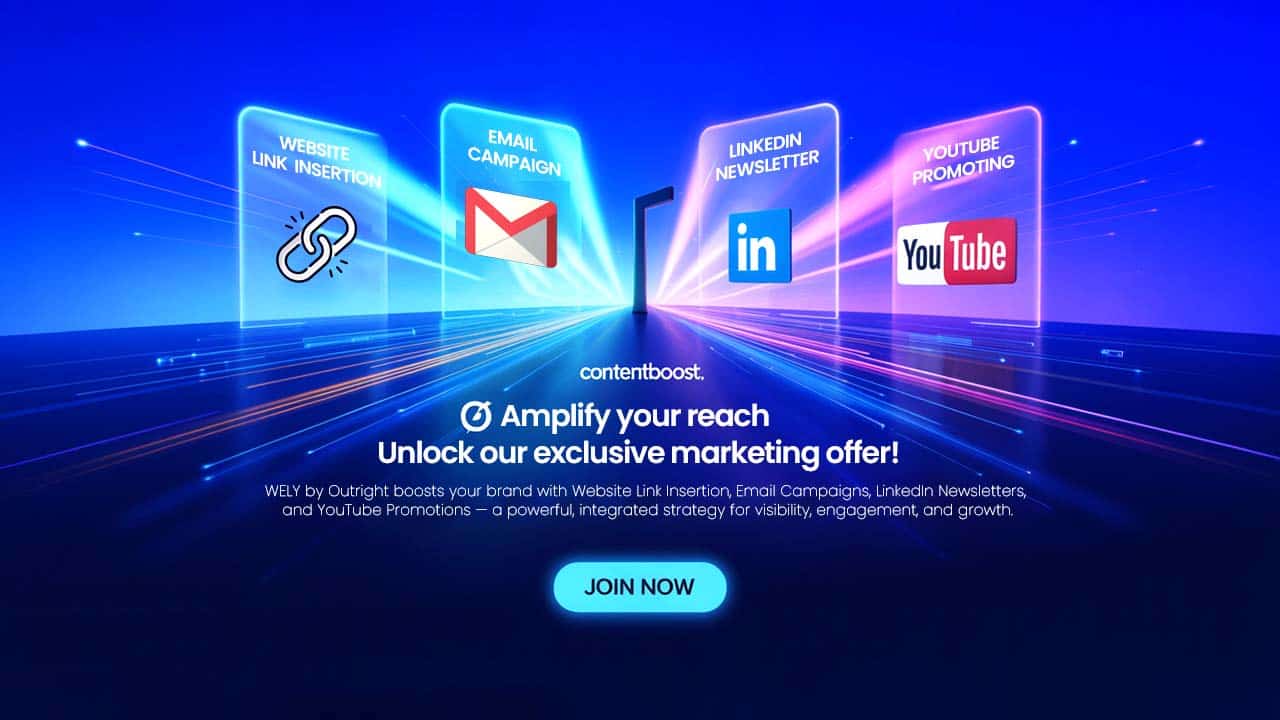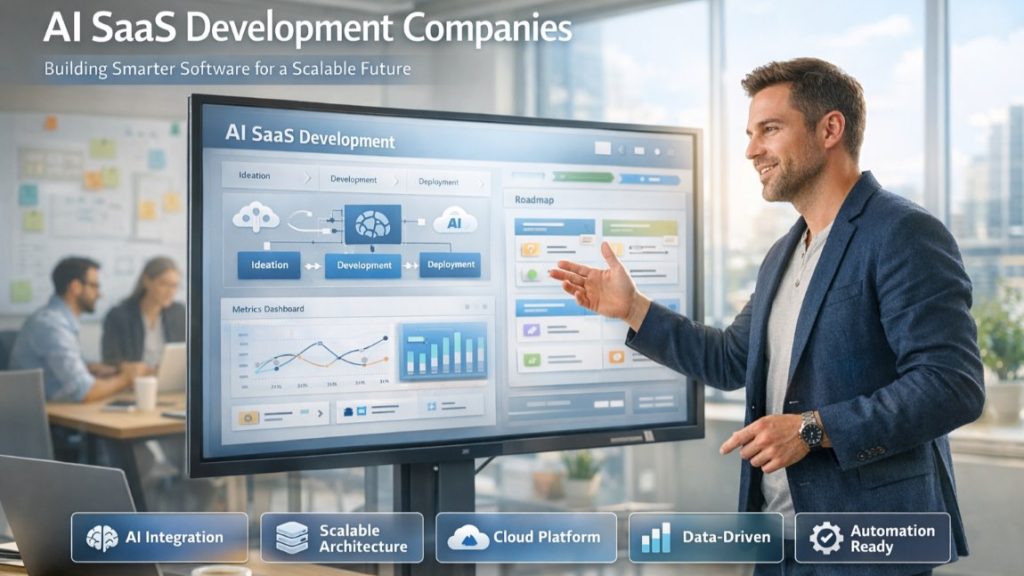In 2025, software defines operational velocity, market responsiveness, and long-term scalability. With industries driven by automation, AI, and digital transformation, enterprises now rely on custom software development to architect efficiency
In 2025, software defines operational velocity, market responsiveness, and long-term scalability. With industries driven by automation, AI, and digital transformation, enterprises now rely on custom software development to architect efficiency and innovation at scale.
A leading custom software development agency offers not just code but a modular system that integrates technology practice with quantifiable business results.
Compared to traditional solutions, custom platforms are designed to meet the organization’s defined operational processes, information requirements, and infrastructure. This precision makes the difference between digital friction and digital advantage.
Why Custom Software?
Custom software fosters businesses to exceed the restrictions of built-in tools by interconnecting their key business logic straight to the system architecture. Unlike traditional applications, which are limited due to their comprehensive feature suite and inflexible workflows, custom-engineered solutions are built to align seamlessly with an organization’s core operational processes. They represent tailored algorithms, business logic, and data models, developing a smart system that succeeds with the growth of your organization.
1. Tailored Architecture for Strategic Agility
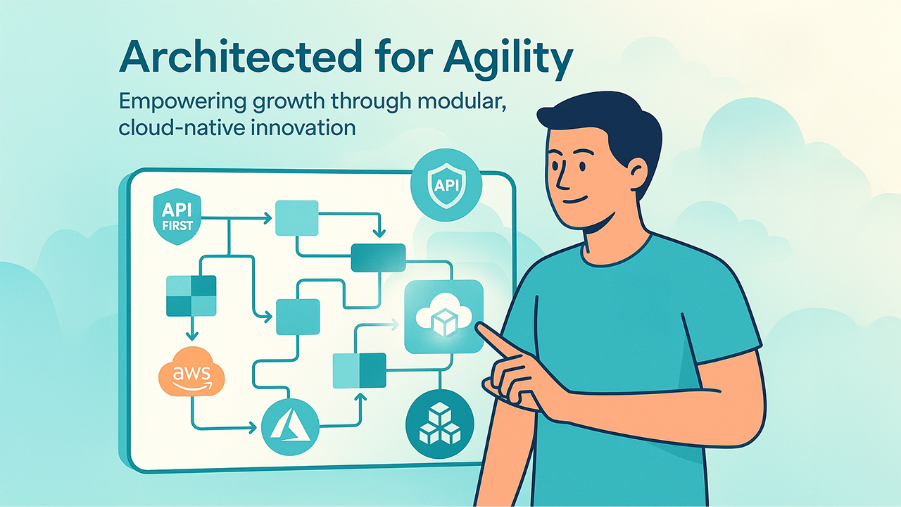
Modern enterprises require modularity and scalability. Personalized software solutions often use:
- Microservices or Scalable Framework to support independent executions and distributed expansion.
- API-driven design that ensures smooth data transmission between hybrid ecosystems.
- Cloud-optimized deployment models, like AWS, Azure, GCP with streamlined resource allocations and auto-scaling.
This system enables businesses to expand seamlessly while keeping performance and data integrity intent across regions and workloads.
2. Design-based Compliance and Security Practice
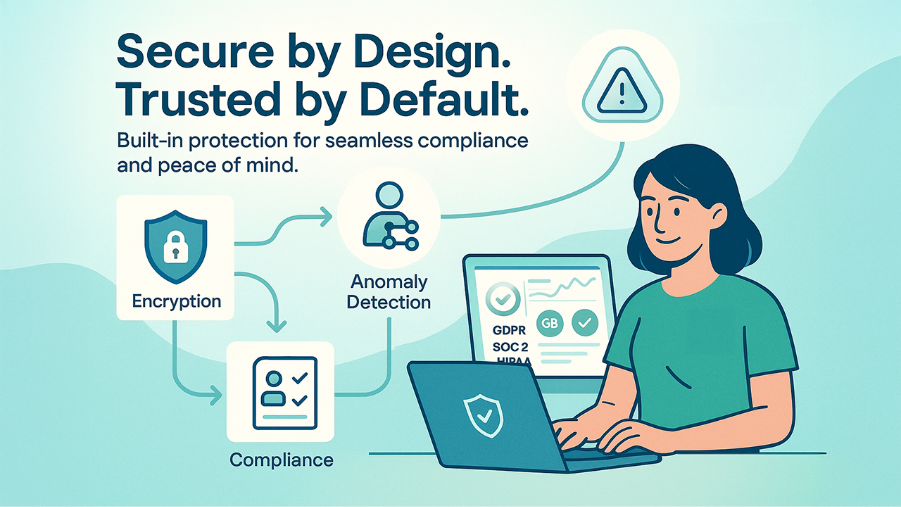
Since the online workplace is growing rapidly, the risks of cyberattacks are increasing alongside. This is where custom software development connects security management into each stage of the technology stack:
- Leveraging TLS 1.3 and AES-256 protocols for ensuring end-user encryption.
- Risk-based authentication and RBAC for granular access control.
- Pre-built logging, monitoring trails, and risk identification.
- Streamlined compliance linking for frameworks like GDPR, HIPAA, and SOC 2.
By integrating these mechanisms throughout the architecture, businesses get continuous compliance adherence without scaling down operational workflow.
3. Enterprise-Level Integration
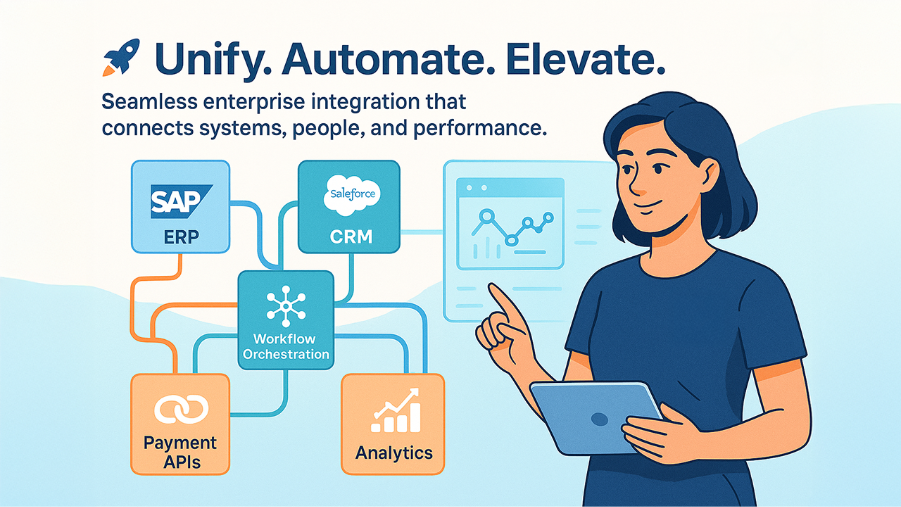
Custom systems are designed for cross-platform compatibility—connecting departments, applications, and branch organizations. Here are some crucial integration layers:
- CRM and ERP systems like Salesforce, SAP, or Microsoft Dynamics 365.
- Payment platforms and financial APIs for instant transaction verification.
- Business smart tools for precise analytics and forecasting.
- Process Automation platforms that connect events across different environments.
In short, custom software shifts segmented workflows into a comprehensive, data-oriented ecosystem that facilitates informed decision-making and long-term expandability.
What a Right Agency Offer
Collaborating with a reliable software agency has become the right business decision. Make sure you choose the agency that should have strong technical expertise with enterprise goals. Key tactics to consider before making a decision:
1. Strategic Analysis and Requirements Modelling
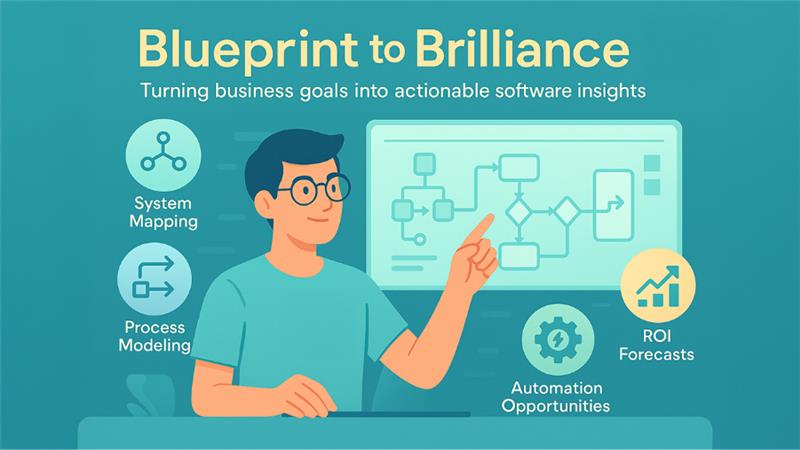
A professional agency starts with an all-inclusive analysis stage that sets goals, limitations, and essential performance measures. The key outcomes may include:
- System architecture modelling and dependency evaluation.
- Process modelling to remove redundancy and find automation opportunities.
- Technical feasibility and ROI forecasts.
This phase ensures that architecture and functionality align precisely with business needs and growth trajectories.
2. Iterative Development and Engineering Practices
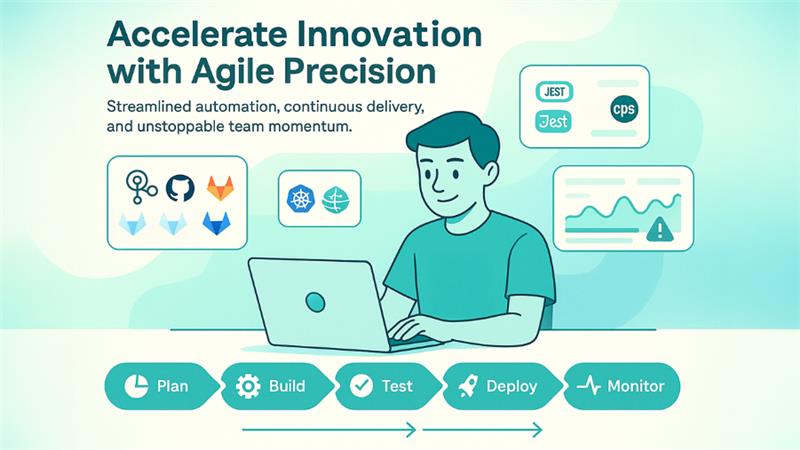
Sophisticated software engineering is agile, data-driven, and completely automated. Most high-performing development teams execute:
- CI/CD pipelines through GitLab CI, Jenkins, and GitHub Actions for fast delivery time.
- Isolated executions, often automated through Kubernetes or Docker Swarm.
- Automated testing frameworks (PHPUnit, Jest, Cypress) for reliability and regression prevention.
- Code instrumentation for real-time performance monitoring.
These practices shorten release cycles while maintaining exceptional stability and code integrity.
3. Post-Launch Improvement and Support
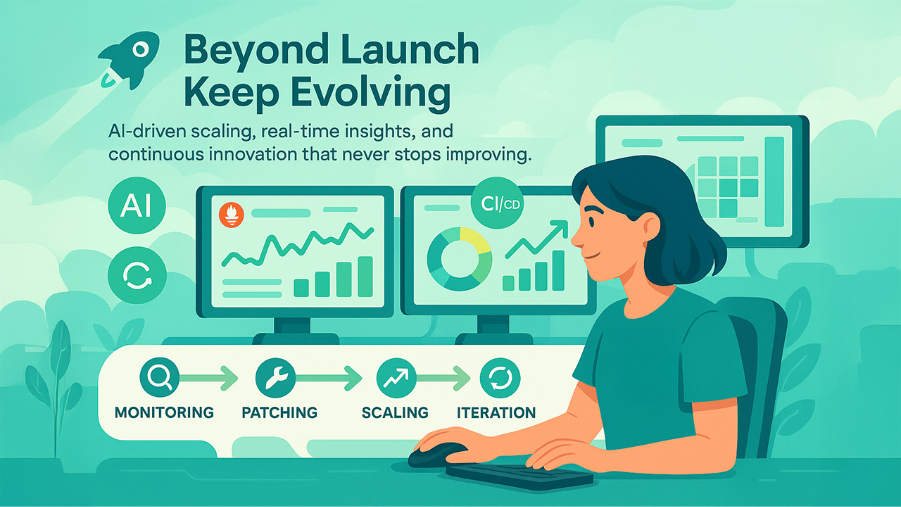
Lifecycle management is provided by professional agencies beyond deployment. This includes:
- Performance monitoring with Prometheus or Grafana for real-time telemetry.
- Automated updates and patching through CI/CD integrations.
- Predictive scaling with the help of AI-driven resource utilization analytics.
- Continuous feature iteration that is based on feedback loops and usage data.
Conclusion: A top-notch agency functions as a long-term engineering partner that sustains software evolution matching with growth of business and shifts intechnology.
Results & ROI
The measurable effect of bespoke software go beyond cost efficiency. If it is executed properly, it can redefine how organizations function, distribute resources, and scale innovation.
1. Operational Efficiency
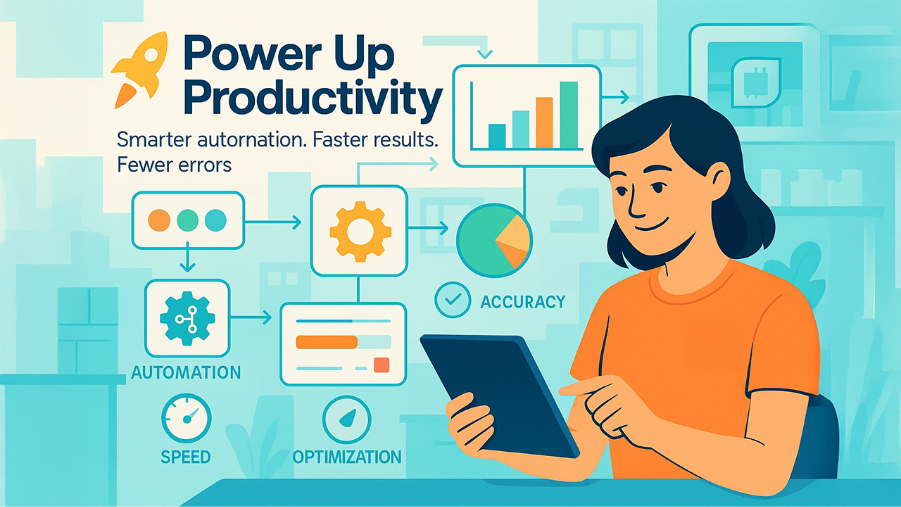
By using smart automation and instant data processing, large-scale businesses typically get:
- Up to 70 % minimization in manual operations.
- 30–50% faster project or development cycles.
- Substantial error reduction via policy-driven verifications and auto-correction logic.
These optimization improvements build gradually, redefining operational architecture from reactive to predictive.
2. Financial and Strategic ROI
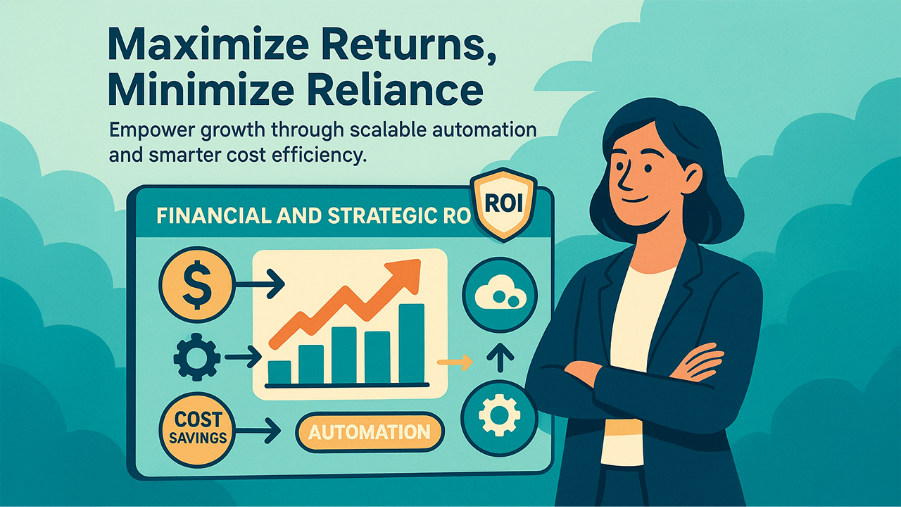
Custom software reduces reliance on external vendors, minimizing licensing redundancy and maintenance expenses. Its total cost of ownership (TCO) rejects as expandability and automation enhance.
Furthermore, dynamic resource allocation via cloud orchestration ensures that infrastructure expenditure aligns directly with performance demand.
The result: long-term financial efficiency and the freedom to innovate without structural limitations.
3. Optimised Competitive Alignment
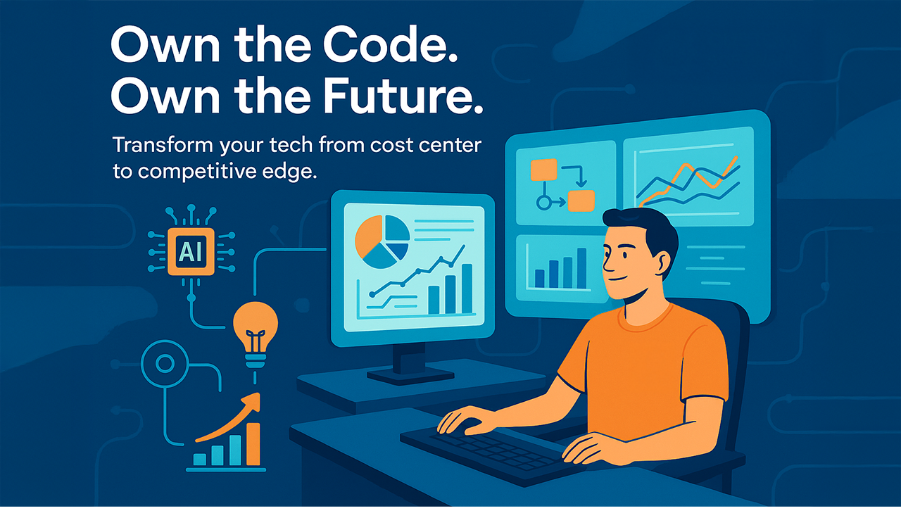
Adopting the latest technologies within your business offers you competitive benefits. Organizations that own their core software systems gain:
- Comprehensive control over feature delivery timeline and deployment cycles.
- Exclusive data architectures and algorithms specifically built for their domain.
- Quick adaptation to regulatory or market dynamics.
Fundamentally, custom software transforms technology from an expense center to a competitive differentiator. This is an extension of core capabilities that industry payers cannot copy.
Choosing a Leading Custom Software Development Agency
When considering a modern custom software development agency, businesses should find an agency having a strategic mindset, not just technical expertise. Leading custom software development service providers distinguish themselves through proven cross-domain experience and architectural maturity.
These agencies will showcase:
- Cross-domain Knowledge, like fintech, supply chain, healthcare, and manufacturing.
- Specialized in full-stack development, such as backend frameworks like Laravel, Node.js, and Django and cutting-edge frontend frameworks like React, Vue, and Angular.
- Proficiency in system integration, including real-time data transmission protocols and REST/GraphQL APIs.
- Advanced DevOps practices highlighting automation, accountability, and rapid delivery.
These capabilities ensure that projects grow smoothly, scale dynamically, and remain manageable at a large business scale.
Final review: Choosing the right software development agency is not an acquisition practice—it’s a thoughtful investment in an online infrastructure built for success, scalability, and sustainability.
Conclusion
In modern times, businesses often leverage their software assets to achieve a great competitive advantage. Conventional tools remain purpose-built, but the right innovation requires management—control over data, implementation, and architecture.
An advanced custom software development agency offers a structured, architecture-led practice that makes digital practices more functional and scalable. From API connectivity and multi-cloud management to consistent evaluation and automation, these agencies develop platforms designed for high efficiency and resilience.
As digital ecosystems grow more complex, success will belong to companies that own their technology stack—not merely use it. Collaborating with the correct agency helps you make your software updated and future-ready—protected, versatile, and goal oriented.
Respond to this article with emojis
